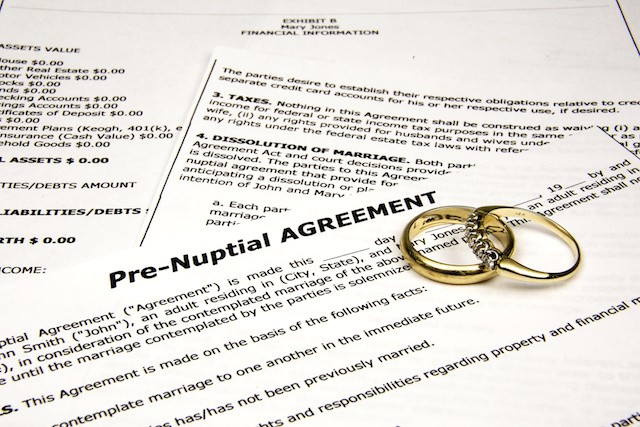Working with your fiancee to reach a prenuptial agreement or working with your spouse to create a postnuptial agreement is increasingly being recognized as one of the most important things both spouses can do to protect themselves from some of the more negative financial consequences of a divorce without such an agreement: high legal fees and extended court battles, uncertain distributions of property and alimony awards, and a public airing of the dirty laundry of your divorce. With that in mind, it is important to understand what should be included in a Florida prenuptial or postnuptial agreement.
The Rights of Both Parties to Property During the Marriage
According to Florida state law, a prenuptial agreement can address, “The rights and obligations of each of the parties in any of the property of either or both of them whenever and wherever acquired or located…” as well as, “The right to buy, sell, use, transfer, exchange, abandon, lease, consume, expend, assign, create a security interest in, mortgage, encumber, dispose of, or otherwise manage and control property.” Thus spouses should take care to address what rights each spouse will have in property currently owned by the spouses and which may be owned in the future.
How Property Should Be Distributed After the Marriage
Following the last point, a prenuptial agreement or postnuptial agreement should address how any separate or shared marital property should be distributed to each spouse following a divorce, including real estate, investments, bank accounts, vehicles, furniture, jewelry, family businesses, etc.
Estate Planning Issues (Life Insurance, Wills, Etc.)
Prenuptial and postnuptial agreements are not just about divorce, but can also address how property should be distributed following one spouse’s death. Thus, any agreement should include information on how estate planning instruments such as wills or life insurance policies should be created and maintained to fulfill the goals of the agreement.
Spousal Support / Alimony
Spousal support (or alimony as it is often called) is often one of the most contentious and financially impactful issues in a divorce. A prenuptial or postnuptial agreement should address the obligations and rights each party has to alimony after a divorce, if any, including the length of alimony payments and monthly amount. Note that child support issues cannot be addressed in a prenuptial or postnuptial agreement.
Indications Both Spouses Were Fully Informed in Reaching the Agreement
Florida law does not require that both spouses have their own attorneys in reaching a prenuptial agreement, but it does say such agreements will not be enforceable when the agreement was not voluntary or was reached through fraud, duress, coercion, or “overreaching.” The law also says that an agreement will not be enforced if the court deems it to be unconscionable due to a lack of disclosure about the spouses’ respective property and financial obligations. Thus, including indications that both spouses voluntarily entered into the agreement with disclosure (or a waiver of the right to disclosure) are important in agreements.
Legal Help in Your Florida Divorce Action
No matter where you are in the divorce process in Florida, from initial consideration to ongoing litigation, The Law Offices of Ira M. Marcus, P.A. in Miami can help. Contact our office today to set up a consultation with a trusted and caring family law attorney.

